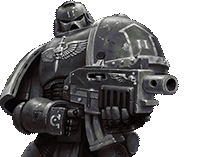1. Everyone chooses an action 2. Everyone rolls initiative 3. Each character resolves their action in order (if possible)
How is this not turn based? There are crpgs that do have this type of combat resolution and *gasp* they are turn-based.
RTwP makes combat feel completely like a clusterfuck. You might as well pause Skyrim every five seconds and say that's how AD&D played.
Kid, you don't know what you don't know. The clusterfuck you describe is the intended result of what is termed, in table-top wargaming, a "simultaneous move" system (rather than an "alternate move" system, the Napoleonic wargame Column, Line and Square was a popular example once). The whole point of everyone deciding on their actions before any are resolved is that it simulates the uncertainty that occurs when things are truly occurring simultaneously (as they do in the IE games). The difficulty is exactly what you would expect, actions are decided on that end up making no sense by the time they're resolved. This can add useful complexity to the system, but it also creates artifacts. RTwP reproduces in cRPGs everything that players hated about the D&D initiative system; something that ToEE (for good or for ill) does not do.
As an example, let's take a closer look at combat resolution for our favorite wizard and archer combo:
IE games: 1) Archer decides to shoot wizard, 2) Wizard starts casting spell (1 and 2 can be reversed if you like), 3) Wizard struck by arrow (spell fizzles into nothing), 4) Wizard's round is wasted
[exactly as described in the PHB]
Gold Box games: 1) Archer's turn comes up, he shoots the wizard, 2) Wizard's turn comes up, he cannot cast a spell because he was damaged earlier this turn, decides to read a scroll instead.
[This creates a mechanical situation not found at all in the pen and paper game, a character whose spell has been interrupted before it has been cast (!) and hence knows that he should take some other action. He is also free to do so, his round has not been wasted on a failed spell and he has not lost a memorized spell]
I should note that I prefer the combat resolution of the gold box games (and Dark Sun: Shattered Lands for that matter), but that's a completely separate issue from which better represents 2nd edition AD&D. So feel free to bash the IE games for having chaotic, unwieldy or senseless combat, but don't claim that they are less representative of the pen and paper rules.
helpful links for the uninitiated:
https://www.google.com/url?sa=t&rct=j&q=&esrc=s&source=web&cd=1&cad=rja&uact=8&ved=0ahUKEwihpOerjLTRAhUFJiYKHcBrDTAQFggcMAA&url=http://home.earthlink.net/~duanevp/dnd/initiative.htm&usg=AFQjCNFx1XCAiw4bVKnbfqOLhGyL5xrpaw
https://www.google.com/url?sa=t&rct=j&q=&esrc=s&source=web&cd=2&cad=rja&uact=8&ved=0ahUKEwihpOerjLTRAhUFJiYKHcBrDTAQFggiMAE&url=http://rpg.stackexchange.com/questions/35588/the-mysteries-of-add-1e-initiative&usg=AFQjCNEi04oZ29b3deZNsH9iNDqYCNOEoQ
https://www.google.com/url?sa=t&rct=j&q=&esrc=s&source=web&cd=3&cad=rja&uact=8&ved=0ahUKEwihpOerjLTRAhUFJiYKHcBrDTAQFggpMAI&url=https://merricb.com/2014/07/01/initiative-in-add-2nd-edition/&usg=AFQjCNEfpou8YhZE_z04rVs-klnzvciN8A




















